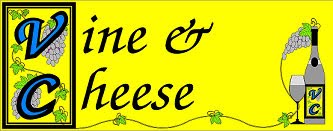Baby wines? Really? What the heck are baby wines? Good question. We've heard the term "baby" applied to certain wines for years. Can't remember the first time but baby wines have been around quite a while. So what are they? Perhaps the place to start for this discussion is what they aren't.
Baby wines are not young not-ready-to-drink wines, although you could call such wines babies. When their youthful burn scorches your mouth though they seem more like rebellious adolescents. Baby wines are also not a second label for a premier producer although they could be a baby version of that top shelf wine. Even though Mondavi of Napa spawned Woodbridge of Lodi, it could never be mistaken for that parent.
In short baby wines are wines that approximate the quality of an acknowledged great wine at a much lower price. So a Baby Brunello is one that has much of the same character of the great one but beware - Its bargain pricing may reflect its shortcomings. Since the advent of Italian IGT laws which allow wines made from grapes grown outside of a delimited appellation to carry the name of the esteemed region, so-labeled wines are acknowledged to be in the style of Brunello, Barolo or whatever; ergo, a baby version of that thing.
Our favorite wine writer, Lettie Teague, is our inspiration for this post and she wrote about the subject in the December 31, 2020 edition of the wsj.com. After several consultations with wine industry pros, she concluded the term, baby wine, is a selling tool. The vendor is calling attention to whatever the adjacent great property has to offer and declaring this one is similar to that one but at a much better price.
"The term baby is meant to leverage brand recognition when attached to certain wines to raise the profile of a lesser label at a more attractive price point." This "associative marketing" intends to convince a consumer that the less prestigious wine merits a try. We should point out that this ploy works only if the customer knows what the great wine is.
Depending on how you define the term, here are some of our baby wines currently in stock:
Alain Patriarche Bourgogne La Montagne is a Chardonnay sourced from just the other side of the Meursault border. Patriarche markets their own legitimate Meursault so La Montagne is probably the closest thing to it.
The Super Tuscan Sassicaia is truly one of the great wines of the world. It can also run upwards of $250/btl. We have a $16.99 Rosso Toscana made by the same winemaker. Could it be a baby Sassicaia?
Post & Beam is new from Far Niente of Napa Valley. It's priced a third lower than their flagship Cabernet Sauvignon. Are they trying to make a baby Far Niente?



